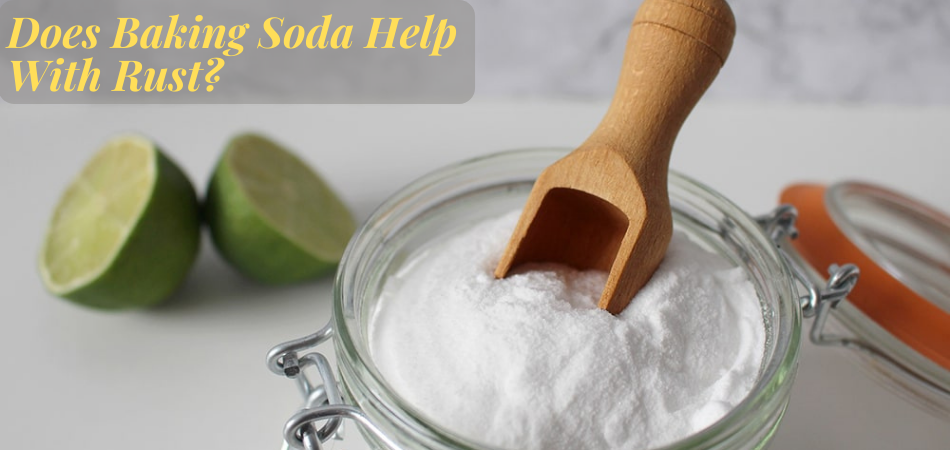The sight of rust on a metal object can sometimes seem like the end and you might be tempted to get rid of the rusted object. However, rust is only an effect of oxidation and it is possible to salvage those oxidized objects. However, does baking soda help with rust?
Yes, baking soda helps with rust. It works effectively on metal objects that have light rust stains on them or corroded items manufactured out of thin metal. Once you know how to readily get rid of rust, it becomes easy to make your metal objects appear new or function as good as new.
This article explains what baking soda is and how to remove rust with baking soda. It also tells you the advantages and disadvantages of rust removal with baking soda.
Contents
What Is Baking Soda?
Baking Soda is also known as bicarbonate of Soda. It is derived from a natural mineral that can be found in mineral springs. It is usually slightly salty when tasted as a result of its basicity.
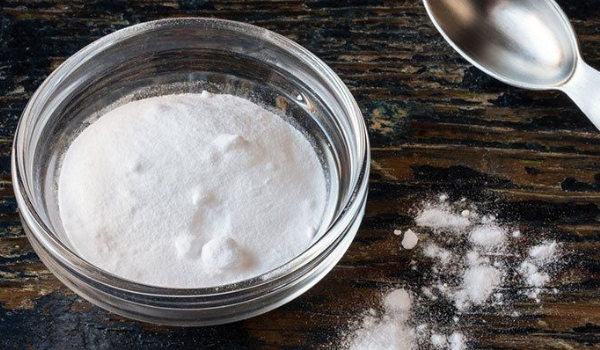
Bicarbonate of soda or baking soda will react with acid to produce bubbles of carbon dioxide as a result of its mineral properties.
Note :
Baking soda is often confused or mistaken for baking powder. They are however two entirely different substances. The major difference is in their composition. While baking soda is simply an alkaline salt that can be used on its own with the application of heat, baking powder is a mixture of baking soda, a dry acid, and some other ingredients to keep both of them dry.
Also, baking powder can be applied to non-acidic ingredients as it already contains its own acid, while it is only used for cooking, it cannot be applied for stain or rust removal.
Rust Removal with Baking Soda
Wondering how baking soda helps remove rust? Baking soda is abrasive which is one of the major properties needed to get rid of stubborn stains. Also, when a mixture of water and baking soda comes in contact with rust, the mixture dissolves the rust as a result of the concentration of the alkaline solution.
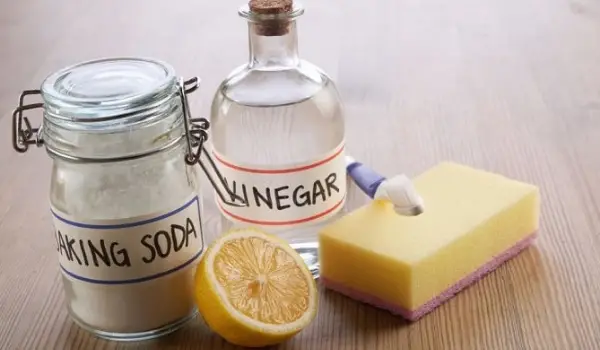
What you need for rust removal:
- Baking soda
- Water
- Metallic scouring pad
Procedure for Rust Removal
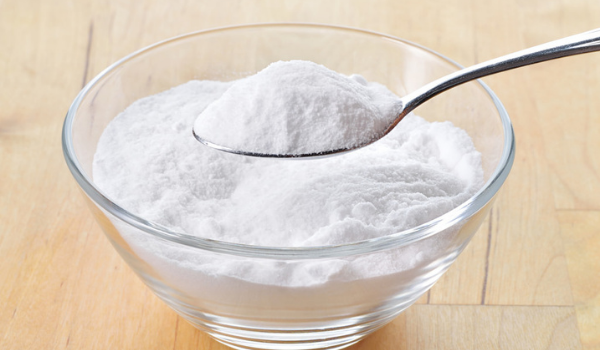
- Sprinkle some water onto the rusted metallic object. This keeps the object moist and makes the rust easy and ready for removal.
- After the rusty object has been kept moist for a while, sprinkle some of the baking soda on the wet part of the object, blowing off the excess powder.
- As an alternative, you can mix the baking powder with water to form a thick paste and then paste the moisture onto the rusted area of the metallic object.
- When making this alternative application, use cold water, or at most water that is at room temperature. Warm or hot water is corrosive to steel.
- Wet the scouring pad and begin to scrub the area covered with baking soda gently to avoid scratching the metal. If the rust is layered, you can scrub a little harder.
- To avoid scratching the metal surface, ensure the scouring pad is kept wet.
- After you must have scrubbed the baking powder off the object, check to see if the rust is still there. If it is still present, go over the whole process again until the rust has been completely gotten rid off.
What Are the Advantages of Using Baking Soda for Rust Removal?
The major advantage is that baking soda is readily available in most homes, and if not, can be shopped for over the counter at a store or supermarket.
The method of using baking powder to scour rust is also cheaper than most other complicated methods available to achieve the same results.
Baking soda is abrasive enough to get rid of rust, but it is not harsh for metallic objects.
What Are the Cons?
The major disadvantage of using baking soda for rust removal is that it involves abrasive action that is both time and energy-consuming.
If you have a lot of rusted metal objects or you want to help with the rust on a large surface area, you will need to expend a lot of energy and time to achieve your goal.
Why Is Baking Soda Great for Rust Removal?
Baking soda is great for rust removal because of several reasons. Let’s take a look at a few of those reasons.
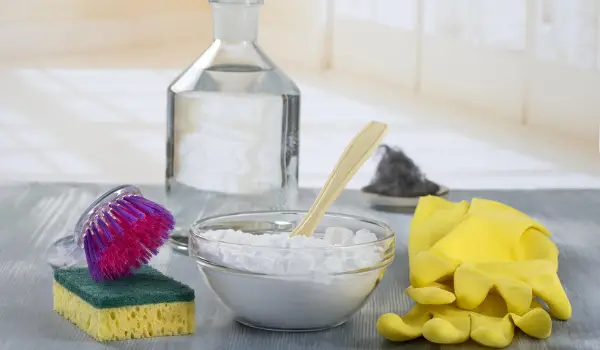
Ability to Form Air Bubbles
Baking soda reacts with acids to form air bubbles. These air bubbles are very powerful and efficient enough to lift rust stains. This is the reason that baking soda is usually mixed with vinegar, an acid, to make a very powerful cleaning solution.
Presence of Grit
Although soap is basic just like baking soda, it is less harsh because of the presence of fat molecules in it. Baking soda has more grit and can dislodge stubborn rust stains and particles that soap cannot get rid off.
It Can Absorb Bad Odors
It is a common sight to see baking soda in home fridges, refrigerators, and stores. This is because baking soda can combat these odors since most odors are acidic.
Baking soda forms a reaction with the acids in the air and neutralizes them leaving behind a fresh smell. Baking soda also does not just mask odors, it removes the odor.
Although the downside to this is that with time, it loses its reactivity on exposure to air for too long. So, you have to keep mixing the baking soda up and change it eventually.

